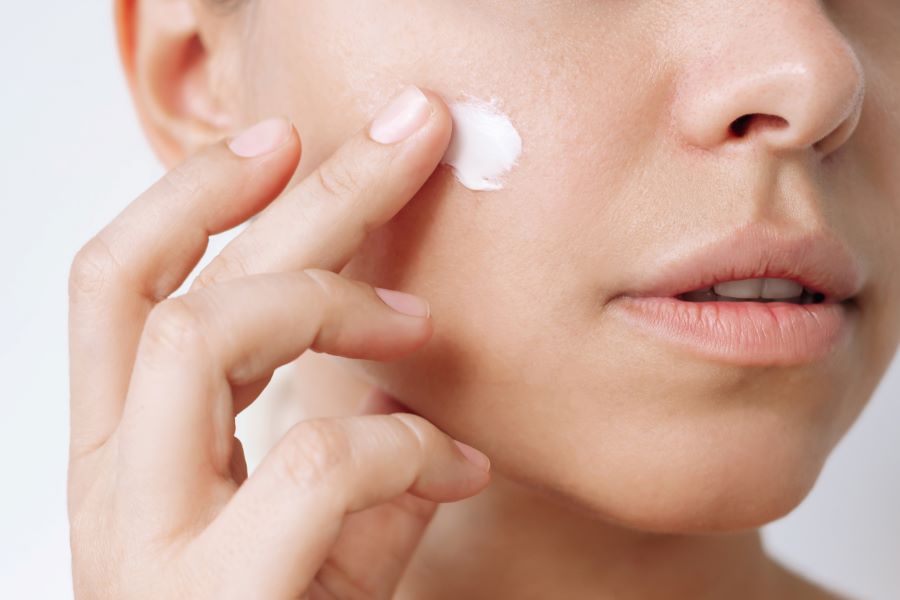The Transformative Power of Skincare Serums
Skincare serums have become a cornerstone of modern beauty routines, offering concentrated formulations designed to target specific skin concerns. These lightweight, fast-absorbing liquids have revolutionized the way we approach skincare, providing potent active ingredients that can penetrate deeper layers of the skin. From addressing fine lines and wrinkles to combating hyperpigmentation and acne, serums have gained a devoted following among skincare enthusiasts and professionals alike. Their rise to prominence reflects a growing consumer desire for targeted, effective solutions that go beyond basic cleansing and moisturizing. As the beauty industry continues to evolve, serums have emerged as a key player in the quest for healthier, more radiant skin.

Historical Context of Skincare Serums
While serums may seem like a modern skincare innovation, their origins can be traced back to ancient beauty rituals. In ancient Egypt, for example, oils and plant extracts were used to nourish and protect the skin. These early “serums” were often made from natural ingredients like aloe vera, olive oil, and various herbs. The concept of concentrated skincare solutions evolved over time, with advancements in cosmetic chemistry leading to the development of more sophisticated formulations in the 20th century.
The Rise of Customized Serums
As consumers become more knowledgeable about skincare ingredients and their individual needs, the demand for customized serums has grown. Many brands now offer personalized serum formulations based on skin type, concerns, and environmental factors. This trend towards customization reflects a shift in the beauty industry towards more individualized approaches to skincare. Consumers can now mix and match different serums or opt for multi-functional products that address several concerns simultaneously.
Environmental Impact and Sustainability
The popularity of serums has also raised questions about sustainability in the beauty industry. With their typically small packaging and high concentration of ingredients, serums can be seen as a more eco-friendly option compared to larger, more diluted products. However, the use of plastic packaging and potential overproduction remain concerns. In response, many brands are exploring more sustainable packaging options and emphasizing responsible sourcing of ingredients.
Serums in Professional Skincare
Skincare professionals, including dermatologists and estheticians, have embraced serums as powerful tools in their treatment arsenals. In clinical settings, serums are often used in conjunction with other treatments like chemical peels or microdermabrasion to enhance results. The ability to target specific skin concerns with high-potency ingredients has made serums invaluable in professional skincare regimens.
The Global Serum Market
The global skincare serum market has experienced significant growth in recent years, with projections indicating continued expansion. Factors driving this growth include increasing awareness of skincare, rising disposable incomes, and a growing aging population seeking anti-aging solutions. Asia-Pacific has emerged as a key market for serums, with countries like South Korea and Japan leading innovation in formulations and textures.
Challenges and Controversies
Despite their popularity, serums are not without controversy. The high concentration of active ingredients can sometimes lead to skin irritation or sensitivity, especially when products are misused or overused. There are also concerns about the marketing claims made by some serum brands, with regulators in various countries cracking down on unsubstantiated or exaggerated promises of effectiveness.
Future Trends in Serum Technology
The future of skincare serums looks bright, with ongoing research and development promising even more advanced formulations. Emerging trends include the use of biotechnology to create more effective and sustainable ingredients, as well as the integration of smart technology to personalize serum application. Some companies are exploring the use of microencapsulation techniques to improve the stability and delivery of active ingredients.
The Role of Serums in Holistic Skincare
As the concept of holistic beauty gains traction, serums are being viewed as part of a comprehensive approach to skin health. This includes considering factors like diet, stress management, and overall lifestyle in addition to topical treatments. Some brands are developing serums that not only address surface-level skin concerns but also aim to support the skin’s natural functions and promote overall well-being.
Educating Consumers on Serum Use
With the proliferation of serum options on the market, consumer education has become increasingly important. Understanding how to properly incorporate serums into a skincare routine, which ingredients work well together, and how to address potential interactions with other products is crucial for maximizing their benefits. Many brands and skincare professionals are focusing on providing clear, accessible information to help consumers make informed choices and use serums effectively.
In conclusion, skincare serums have transformed the beauty industry, offering powerful solutions for a wide range of skin concerns. Their evolution from ancient beauty rituals to high-tech formulations reflects the ongoing quest for more effective, targeted skincare. As the serum market continues to grow and innovate, it will likely play an increasingly central role in both personal and professional skincare routines. The future of serums promises even more personalized, sustainable, and scientifically advanced solutions, cementing their status as a cornerstone of modern beauty practices.




